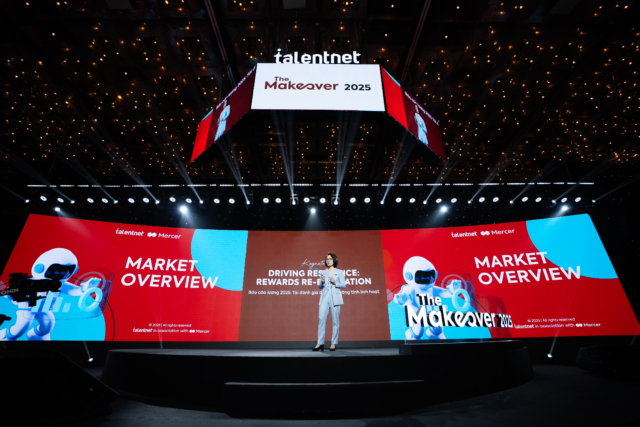How to Build a Strong Culture in Manufacturing

May 25, 2025
Last updated on Nov 26, 2025
A disengaged workforce costs you money. Companies with low engagement suffer higher absenteeism and more quality defects. For manufacturing leaders, building a strong culture isn't just nice-to-have—it delivers tangible results.

Key takeaways
- Manufacturing companies with strong cultures gain higher profits and less turnover than competitors with poor engagement.
- Leaders must spend time on the factory floor engaging directly with workers to build trust and demonstrate cultural values.
- According to the Talentnet-Mercer 2025 remuneration report, Gen Z (born 1997-2002) now makes up 26.6% of the workforce, showing their growing presence in the workplace.
- Shifting from rigid compliance to employee empowerment directly improves quality, innovation, and problem-solving.
- Companies need targeted training programs as half of manufacturing jobs will require new technical skills by 2025.
Manufacturing faces critical challenges: severe skills shortages, rapidly evolving technology, and changing worker expectations. This article shows CEOs how to turn these challenges into advantages through strategic culture improvement in the workplace. The business case is clear—Great Place to Work research shows companies with strong cultures triple their stock market performance compared to competitors with weak cultures.
The blueprint of a winning manufacturing culture
What separates thriving manufacturers from struggling ones? Increasingly, it’s organizational culture—the shared values and practices that define how work gets done. Five core elements create the foundation that drives manufacturing excellence, employee retention, and sustainable growth.
- Leadership as the bedrock: Leaders must live cultural values through their daily actions. Put it simply: culture flows from the top down. This means executives regularly visiting production areas, talking directly with operators, and showing genuine interest in frontline challenges. Plant managers who implement regular floor walks and open forums create significantly higher trust.
- Empowerment fuels engagement: Forward-thinking manufacturers are moving beyond rigid command structures to environments where workers actively contribute ideas. Toyota exemplifies this approach—any worker can stop the production line when spotting a quality issue. According to McKinsey research, team-focused transformations can lead to 30 percent efficiency gains in organizations that implement these strategies effectively. When employees solve problems and suggest improvements rather than just following orders, both innovation and ownership increase.
- Continuous learning for competitive edge: With only 28% of Vietnamese workers having formal training, creating a learning culture is essential. VinFast demonstrates this commitment through its Training Centre that prepares workers for advanced production roles. Companies that prioritize skill development keep people longer—LinkedIn data shows 94% of employees stay with organizations that offer meaningful growth opportunities. Developing a workforce AI mindset is increasingly crucial as technologies evolve, preparing teams for future manufacturing requirements.
- Open communication builds unity: Effective manufacturing cultures break down barriers between management and production staff. Two-way communication enables faster problem-solving and creates an environment where people feel safe raising concerns. When production workers and management share information openly, efficiency improves and divisions between departments fade.
Safety and well-being as core values: Top manufacturing cultures make worker safety a priority, not just a compliance requirement. Milliken & Company transformed by letting shop-floor workers lead safety initiatives, achieving near-zero injury rates and earning “Best Place to Work in Manufacturing” recognition. Companies that care about both physical safety and mental well-being show employees they matter as people, not just as production resources.

Strategic CEO Actions to Forge a Winning Culture and Overcome Today’s Challenges
The manufacturing landscape demands more than understanding culture—it requires decisive action. These five targeted strategies address the most pressing challenges facing today’s manufacturing while delivering measurable performance improvements.
Lead by example and embed clear values
Manufacturing thrives when values guide daily decisions, not just decorate wall posters. Define core values like safety, quality, and innovation, then translate them into specific behaviors everyone understands. Leaders must visibly demonstrate these values:
- Integrate values into hiring criteria and onboarding processes
- Train supervisors to recognize and reinforce value-aligned behaviors
- Include values adherence in performance evaluations at all levels
Invest in people to close skill gaps and foster loyalty
The manufacturing skills crisis demands immediate action. The World Economic Forum projects 40% of core skills in the manufacturing and supply chain sectors are expected to change in the next 3-5 years, yet manufacturers lack structured training programs. Samsung Vietnam addressed this by creating comprehensive training programs with clear advancement paths.
This direct connection between workforce stability and productivity makes skill development a business necessity, not just an HR function.
Empower teams and enhance communication to boost performance
Manufacturing traditionally relied on top-down control, but today’s best performers share authority more widely. Create team structures where frontline employees contribute to problem-solving and process improvement. Continental Automotive’s communication system ensures information flows effectively between management and production teams, directly improving quality.
Eagle Hill research reveals 77% of employees say culture affects their ability to do their best work, showing how empowerment directly influences performance. Breaking down barriers between office and factory culture creates unity and sparks innovation. Adopting a connected worker mindset helps Vietnam factories both attract and retain employees by fostering collaboration and technological integration.

Prioritize well-being and flexibility to attract modern talent
A Workmonitor report by Randstad shows 83% of workers prioritize supportive cultures that enable work-life balance. As workforce demographics shift—with Gen Z forming one-third of Vietnam’s workforce by 2025—offering greater flexibility becomes essential for attracting talent.
Flexibility options for production environments:
- Implement self-service shift swapping systems
- Offer compressed workweek schedules (e.g., four 10-hour days)
- Create reasonable accommodations for family emergencies
- Provide advance notice of schedule changes whenever possible
Factory flexibility doesn’t mean remote work—it means creating reasonable accommodations through creative scheduling, easy shift exchanges, and compassionate leave policies that respect employees as whole people.
Implement recognition systems that reinforce desired behaviors
Recognition amplifies cultural values when systematically applied. Create both formal programs (awards, bonuses) and informal practices (public appreciation) that celebrate achievements aligned with your values. Recognition should span all levels—highlighting contributions from machine operators through senior management—and celebrate team successes alongside individual achievements. Manufacturing particularly benefits from recognizing safety milestones, quality improvements, and innovative problem-solving.
For manufacturing leaders, culture drives business results. Companies with strong cultures significantly outperform competitors in productivity, quality, innovation, and financial returns. Begin by assessing your current environment against the blueprint provided and identify one strategic action to champion immediately. Manufacturing excellence today depends not just on technology and processes, but on building cultures where people want to contribute their best. Talentnet can provide expert guidance to transform your manufacturing culture into a lasting competitive advantage.

Solve your HR problems!
6th Floor, Star Building, 33 Mac Dinh Chi, Saigon Ward, Ho Chi Minh city, Vietnam




